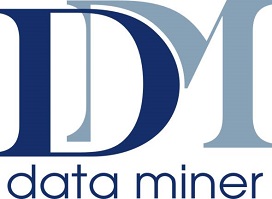About this course
The Lean Six Sigma Yellow Belt training is designed to provide delegates with a good understanding of the basic Lean Six Sigma methods and prepare them not only to participate as contributors to Lean Six Sigma projects, but also to start to address simple improvements in their own working area. Yellow Belts are not experts in the methodology, but understand the activities, deliverables and key concepts of Team problem-solving.
Yellow Belts are expected to improve processes in their own day-to-day work processes and provide Subject Matter Expertise to support Green and Black Belts. Following the use of the Lean Six Sigma methodology for several months, Yellow Belts can choose to continue on their Lean Six Sigma journey by attending the Green Belt training (LSSPGB). This will provide a refresher to what they have learnt and develop a greater understanding of the methodology by introducing more tools. The Green Belt also offers the opportunity for certification.
There is no exam at the end of the LSSYB. A certificate of attendance is issued upon completion of the training.
At course completion
At the end of this course attendees will be able to:
- Understand the key principles of Lean Six Sigma
- Identify improvement opportunities in your organisation (projects)
- Understand and use the Define, Measure, Analyse, Improve, Control (DMAIC) model and key activities
- Use the basic tools and techniques
- Understand the role of Yellow Belts in Lean Six Sigma projects
- Be able to run small improvements in their day-to-day work processes
Lean Six Sigma Overview (history and main concepts)
- Lean Six Sigma as a Management philosophy
- Roles in Lean Six Sigma
- Steps of Lean Six Sigma
- Six Sigma metric
- Effective teamwork
- Case Study – Swan Hotel
Define Phase
- Problem Statements and goals
- The Voice of the Customer (VOC)
- Kano
- Critical to Quality
- Lean Six Sigma Projects
Measure Phase
- Introduction and measurement challenges
- Process Performance Baseline
- Process Mapping
- Value Stream Mapping
Analyse Phase
- Exploratory Data Analysis (visual)
- Value Analysis
- Types of waste
- Root Cause Analysis – 5 Why’s / Ishikawa diagrams
Improve Phase
- Selecting Improvement Solutions
- Ease & Effect matrix
- Risk Management – FMEA (overview)
Control Phase
- Sustaining improvement
- Ongoing process measurement
- Statistical Process Control (SPC) – overview
Conclusions
- Example of Yellow Belt improvement
- Case Study (Financial Services)
Examination
There is no examination at the end of this course.
There are no prerequisites for this course except a willingness to participate and an open mind.
Auditoriniai mokymai
| Pradžios data | Trukmė, d. | Kurso pavadinimas | Kaina, € | Statusas |
| 2023-02-13 | 5 | 20410: Installing and Configuring Windows Server 2012 | 1500 | |
| 2023-02-21 | 5 | 20412: Configuring Advanced Windows Server 2012 Services | 1500 | |
| 2023-03-06 | 5 | 20411: Administering Windows Server 2012 | 1500 | |
| 2023-03-27 | 5 | 10969: Active Directory Services with Windows Server | 1500 | |
| Užklausti | 5 | Administering the Web Server (IIS) Role of Windows Server (nuotolinė klasė - ENG) | 1500 | Organizuojamas |
| Užklausti | 5 | Installing and Configuring Windows Server 2012 (nuotolinė klasė - ENG) | 1500 | Organizuojamas |
| Užklausti | 5 | Fundamentals of a Windows Server Infrastructure (nuotolinė klasė - ENG) | 1500 | Organizuojamas |
| Užklausti | 5 | Active Directory Services with Windows Server (nuotolinė klasė - ENG) | 1500 | Organizuojamas |

